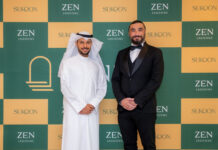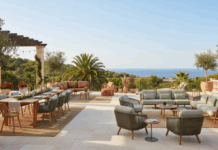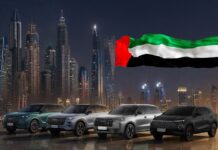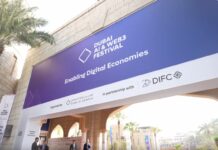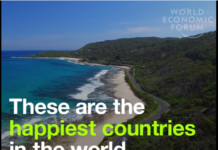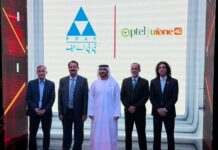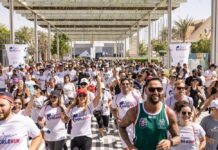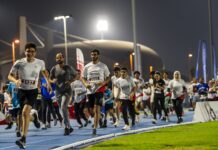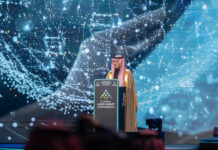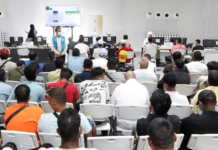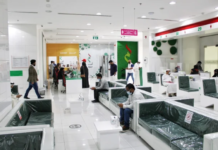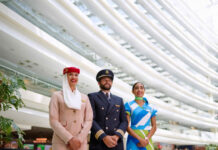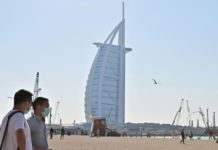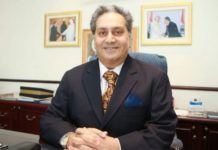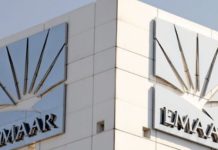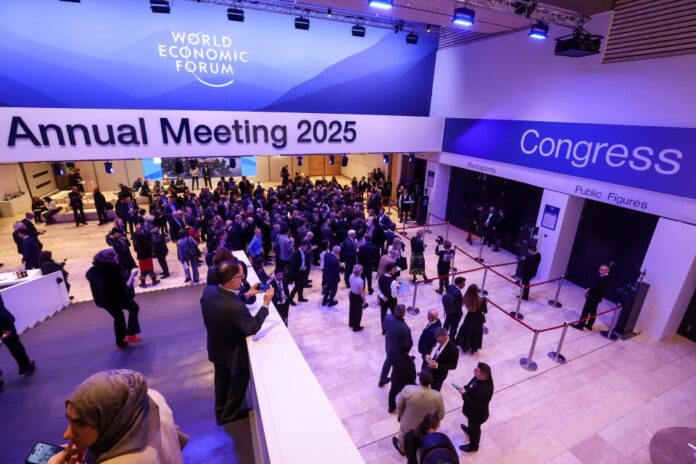
UAE, Saudi House and Invest Qatar Pavilions showcased initiatives from the region and hosted key sessions
By Anthon Garcia and Abdul Basit
The 55th World Economic Forum (WEF) Annual Meeting in Davos convened under the theme “Collaboration for the Intelligent Age” from January 20 to 24, 2025. The event gathered close to 3,000 government leaders, business executives, academics, and key stakeholders who tackled various global economic challenges.
The five-day gathering hosted around 500 sessions and workshops.
Emphasis on cooperation
Ahead of Davos 2025, WEF published two key reports that shed light on the state of global collaboration and the pressing risks shaping today’s society.
The Global Risks Report 2025, based on insights from over 900 experts, identified state-based armed conflict as the most immediate threat, with misinformation and disinformation fueling short-term instability and eroding trust in governance.
Meanwhile, the Global Cooperation Barometer 2025 provided a data-driven assessment of collaboration across five key pillars: trade and capital flows, innovation and technology, climate and natural capital, health and wellness, and peace and security. While global cooperation remained above pre-pandemic levels, it had stagnated over the past three years, largely due to deteriorating global peace and security.
Emphasizing heightened cooperation during the event, Børge Brende, president and CEO at WEF, said, “We are in one of the most complex and consequential moments in generations when fast-changing geopolitical, geoeconomic and technological currents are shaping our societies and our industries and will do so for years to come.”
“In this era of uncertainty, we must find ways of working together because force cannot replace discourse and conflict cannot replace compromise,” he added.
António Guterres, United Nations secretary-general, echoed the urgency for peace and multilateral dialogue.
“From the Middle East to Ukraine, to Sudan and beyond, we still face an uphill battle. We will never give up in calling for peace – but peace grounded on values: The UN charter, international law, including international humanitarian law, and the principles of sovereignty, political independence and territorial integrity of states,” he said.
AI is the talk of the town
As Davos 2025 centered on Intelligent Age, artificial intelligence (AI) was a key topic over the week.
One of the key highlights was the announcement of three new Centers for the Fourth Industrial Revolution (C4IR). The centers will be located in Riyadh in Saudi Arabia, Muscat in Oman, and Pretoria in South Africa.
C4IR Oman, hosted by the Ministry of Transport, Communications and Information Technology, will play an important role in the country’s Vision 2040 strategy. The center will focus on AI competitiveness, governance, quantum computing, and energy transition, aligning with Oman’s ambition to become a regional leader in digital transformation.
Meanwhile, the Riyadh Center for Cyber Economics will focus on the economic dimensions of cybersecurity, recognizing the vital role cyber resilience plays in sustainable economic growth and digital stability.
“The Center for Cyber Economics marks a decisive step towards advancing knowledge and understanding of the economic dimension of cybersecurity to safeguard economic growth, unlock new opportunities and reveal new pathways for cross-sector collaboration towards a resilient future for global economies,” Majed bin Mohammed Al-Mazyed, governor of the National Cybersecurity Authority of Saudi Arabia, remarked.
Abu Dhabi’s G42, a leading AI and cloud computing company, also sent a high-level delegation to this year’s Davos 2025, being one of the founders and strategic partners of AI House. AI House, launched in last year’s Davos, is a non-profit, global platform that unites experts from AI research, technology, industry, policy, politics, and civil society to discuss AI progress and its impact.
For this year, AI House explored AI’s evolving role, from its growing impact on global dynamics to the need for regulation and ethical considerations. Discussions covered balancing opportunities and risks, real-world applications across industries, groundbreaking innovations, and setting goals to ensure AI’s progress remains inclusive, sustainable, and beneficial for all.
Spotlight in the Middle East
Throughout this year’s Davos, Middle Eastern countries also had a strong presence.
For instance, the Saudi House Pavilion put the limelight on Saudi Vision 2030’s economic reforms and investment potential across various sectors — including health, transport, logistics, infrastructure, and tourism.
The Royal Commission for Jubail and Yanbu (RCJY) also announced that Jubail Industrial City was the first in the Middle East to join WEF’s initiative to decarbonize industrial clusters. Meanwhile, in one session, Salesforce unveiled plans for a new regional headquarters in Riyadh and committed to upskilling 30,000 Saudi citizens by 2030. The company further partnered with IBM to establish an AI Innovation Center in the country.
In the UAE Pavilion, the focus was on the country’s strategic vision for global leadership in economic growth, trade, renewable energy, artificial intelligence, and digital transformation. With a delegation of over 100 government and private sector leaders, the UAE focused on strengthening international partnerships, fostering innovation, and promoting sustainable development.
“The UAE’s distinguished participation in the World Economic Forum (Davos 2025) embodies the vision of President H.H. Sheikh Mohamed bin Zayed Al Nahyan, and the directives of H.H. Sheikh Mohammed bin Rashid Al Maktoum, Vice President, Prime Minister, and Ruler of Dubai. It underscores the UAE’s commitment to maintaining a strong presence and active contribution in international platforms across various sectors. This engagement strengthens the UAE’s successful global partnerships and supports the achievement of national objectives across all developmental pathways, while contributing to international efforts to achieve comprehensive and sustainable development,” Mohammad Abdullah Al Gergawi, Minister of Cabinet Affairs, said.
“The priority the UAE places on active participation in Davos aligns with the critical importance the country attributes to the economic sector. This sector plays a pivotal role in achieving national strategies and goals across all areas,” he further enthused.
The UAE Pavilion also hosted a dedicated panel on clean energy ahead of the International Day of Clean Energy. It underscored the UAE’s commitment to renewable energy and global climate action, in line with its COP28 agreements.
Davos 2025 also saw the inaugural Invest Qatar Pavilion. Among the highlights were the Doha Forum Reception and a networking breakfast by the Qatar Free Zones Authority (QFZ) and Qatar Financial Centre (QFC). There were also panel discussions about tech investment opportunities, logistics, and the country’s efforts to attract global talent and boost innovation in the Middle East.
Sheikh Ali Alwaleed Al-Thani, CEO at Invest Qatar, reflected on the pavilion’s debut, stating, “The debut of the Invest Qatar Pavilion underscores our commitment to aligning with international priorities while advancing Qatar’s vision for a diversified and resilient economy. The meaningful dialogues and business engagements at the pavilion reaffirm Qatar’s position as a leading destination for investment.”

